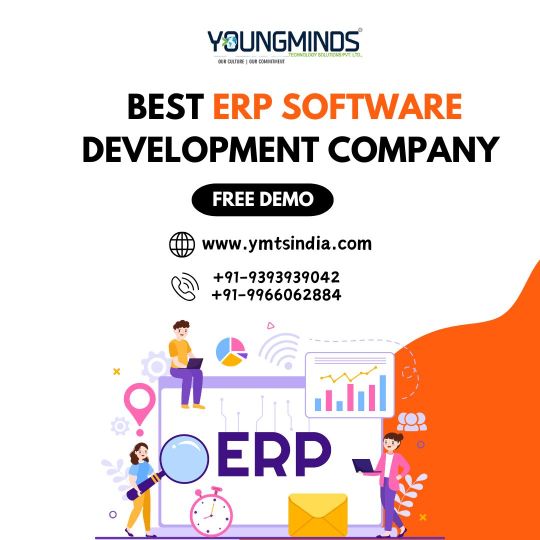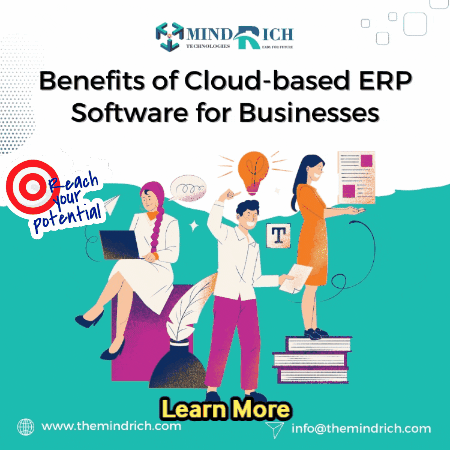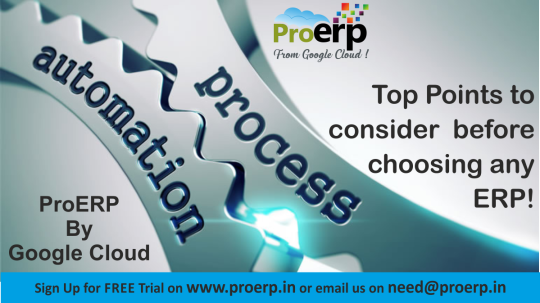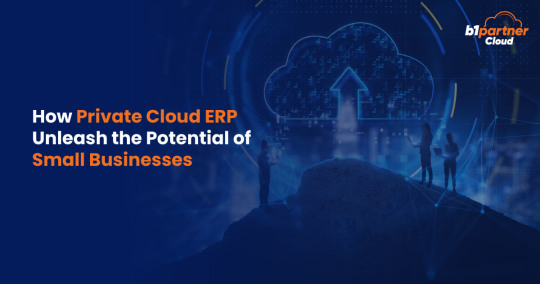#cloud ERP solutions
Explore tagged Tumblr posts
Text
Choosing between cloud and on-premises ERP depends on your business needs. Cloud ERP offers scalability, cost-efficiency, and remote access, with lower upfront costs and provider-managed updates. On-premises ERP provides greater data control and customization but requires significant initial investment and maintenance. Your decision should align with your strategic goals, budget, and technical requirements.
1 note
·
View note
Text
NetSuite Partner Memphis
Looking for a trusted NetSuite Partner in Memphis? We offer expert ERP consulting, implementation, and customization to help businesses optimize operations. With our cloud ERP solutions, you can streamline workflows, improve financial management, and boost efficiency. Contact us today for tailored NetSuite services in Memphis!
For more details click : NetSuite Partner Memphis

0 notes
Text
Best ERP Software Development Company – Scalable & Custom ERP Solutions
In today’s fast-paced business world, having the right ERP software is essential for streamlining operations, improving productivity, and enhancing decision-making. You've come to the right place if you’re looking for the best ERP software development company!

Why Choose Our ERP Software Solutions?
We specialize in custom ERP software development tailored to your business needs. Whether you're a startup or a large enterprise, our ERP solutions integrate all business functions, including finance, HR, inventory, sales, and customer management, into a unified system.
Key Features of Our ERP Software
✔️ Customizable Modules – Get industry-specific ERP solutions with flexible modules. ✔️ Cloud & On-Premise ERP – Choose between cloud-based ERP or on-premise deployment. ✔️ Automation & Integration – Automate workflows and integrate with third-party applications. ✔️ Data Security & Backup – Ensure data protection with advanced security measures. ✔️ User-Friendly Interface – Easy-to-use dashboard for seamless navigation.
Industries We Serve
Our ERP solutions cater to diverse industries, including:
Manufacturing – Streamline production, supply chain, and inventory.
Retail & E-commerce – Enhance inventory tracking and customer management.
Healthcare – Manage patient records, billing, and compliance.
Education – Automate admissions, attendance, and learning management.
Logistics – Optimize fleet management and real-time tracking.
Why We Are the Best ERP Software Development Company
🔹 Experienced Developers – Our team has expertise in ERP customization and development. 🔹 Scalable Solutions – Our ERP software grows with your business. 🔹 24/7 Support – We offer dedicated support and maintenance services. 🔹 Cost-Effective – Get high-quality ERP solutions at competitive prices.
Boost Your Business with Our ERP Solutions!
Looking for a reliable ERP software company? Contact us today for a free consultation and let’s transform your business with the power of ERP!
#Best ERP software Development Company#Custom ERP solutions#ERP software development#ERP Development Company#Cloud ERP solutions#Enterprise resource planning software#Business automation software#ERP solutions provider#Top ERP Software Company
0 notes
Text
Transforming Growth with Cloud ERP Solutions: A Guide for Businesses
In today’s fast-evolving business world, agility, efficiency, and scalability are important for maintaining a competitive edge. Cloud ERP solutions have emerged as a game-changing technology, enabling organizations to smooth operations, enhance decision-making, and drive growth. Whether you’re a small business aiming for operational excellence or an enterprise scaling its processes, adopting the best cloud ERP systems can transform your operations.
What is Cloud ERP?
Cloud ERP (Enterprise Resource Planning) refers to ERP software hosted on cloud platforms, offering businesses access to critical applications via the internet. Unlike traditional on-premises ERP systems, cloud ERP eliminates the need for hefty hardware investments and provides smooth updates, ensuring businesses stay ahead in their operational capabilities.
By integrating functions such as finance, human resources, supply chain, and customer relationship management into a single system, cloud ERP solutions enable businesses to unify their operations and enhance productivity.
Why Choose the Best Cloud ERP?
Selecting the best cloud ERP is essential for maximizing benefits and addressing your unique business needs. Here's why businesses are gravitating toward cloud ERP platforms:
Cost Efficiency : Cloud ERP systems operate on a subscription model, eliminating significant upfront capital expenditures. This makes them especially beneficial for small businesses seeking cost-effective solutions.
Scalability and Flexibility : The best cloud ERP platforms grow with your business. Whether you’re adding new users, integrating advanced features, or expanding into new markets, cloud ERP adapts to your evolving needs.
Enhanced Security : Leading providers of cloud ERP solutions implement robust security measures, including data encryption, regular backups, and compliance with global standards. This ensures your sensitive business data is safe.
Real-time Insights : Cloud-based ERP solutions offer real-time data analytics, empowering businesses to make informed decisions quickly. With centralized data, businesses gain a holistic view of operations and can identify areas for improvement.

Benefits of Cloud ERP for Small Businesses
Small businesses often face challenges such as limited budgets, resource constraints, and the need to remain competitive. Cloud ERP systems are a lifeline for these enterprises, offering tailored solutions that cater to their specific requirements. Here’s how the best cloud ERP for small businesses can make a difference:
Affordability: Small businesses can access enterprise-grade tools without breaking the bank, thanks to the pay-as-you-go model.
User-Friendly Interfaces: Simplified interfaces and intuitive dashboards reduce the learning curve, allowing teams to quickly adapt and utilize the system effectively.
Automation and Efficiency: Automating routine tasks such as inventory tracking, invoicing, and payroll management frees up resources to focus on strategic growth initiatives.
How to Choose the Right Cloud ERP Solution
With a plethora of cloud ERP solutions in the market, selecting the right one can be daunting. Here are some factors to consider:
Business Requirements: Identify your core operational needs. For example, small businesses may prioritize affordability and simplicity, while enterprises may focus on advanced analytics and integration capabilities.
Customization and Integration: Choose a system that can integrate seamlessly with your existing tools and customize workflows to align with your processes.
Vendor Reputation: Opt for providers known for their reliability, customer support, and innovative features. Reading reviews and testimonials can provide valuable insights.
Scalability: Ensure the solution can accommodate future growth without requiring a system overhaul.
Why Cloud ERP is the Future
The shift to cloud-based solutions is no longer a trend but a necessity. As businesses increasingly rely on digital transformation, the flexibility and efficiency offered by cloud ERP systems make them indispensable. Whether you’re exploring the best cloud ERP for small businesses or evaluating enterprise-level solutions, adopting this technology is a strategic move to future-proof your operations.
Conclusion
Cloud ERP solutions are revolutionizing the way businesses operate, providing them with the tools they need to succeed in a competitive environment. By choosing the best cloud ERP to your needs, you can optimize operations, reduce costs, and gain a competitive edge. For small businesses, the accessibility and affordability of cloud ERP make it an invaluable asset.
As your business grows, investing in a reliable cloud ERP solution ensures you stay agile, efficient, and prepared to tackle the challenges of tomorrow.
0 notes
Text
#technews#Enterprise Resource Planning (ERP)#ERP Solutions#Business Management Software#Integrated Business Applications#Supply Chain Management#Customer Relationship Management (CRM)#Financial Management Systems#Human Resources Management#Inventory Management Software#Manufacturing Resource Planning#Cloud ERP Solutions#On-Premise ERP Systems#ERP Implementation Services#ERP Consulting#ERP Software for Small Business#ERP Software for Manufacturing#ERP System Integration#ERP Software Development#ERP Customization Services#ERP Training and Support
0 notes
Text
Cloud ERP Trends in 2025- How to Leverage Technological Advancements
Table of Contents
Importance of Cloud ERP for Enterprises
Top Trends Driving Innovation in Cloud ERP Solutions
How Private Cloud ERP Solutions Align with Trends
Concluding Remarks
The integration of cloud technology with ERP systems has revolutionized modern business operations. Cloud ERP solutions facilitate efficient workflow patterns, including remote work, offering high scalability and cost-effectiveness. According to official reports, the global cloud ERP market is projected to reach USD 181 billion by 2032.
This article explores the key trends and innovations in the cloud ERP sector, starting with the importance of cloud-based ERP for businesses.
Please Click on below link - SAP B1 Cloud
Importance of Cloud ERP for Enterprises
Cloud ERP systems offer substantial benefits for businesses, including improved efficiency and reduced operational costs. By centralizing data and automating processes across departments, these solutions streamline operations, minimize human errors, and enhance decision-making with real-time data.
Additionally, the scalability and adaptability of cloud ERP systems allow businesses to meet changing customer demands and growth expectations. These solutions help companies remain compliant with regulations, regardless of their size, providing a competitive edge by increasing customer satisfaction.
Top Trends Driving Innovation in Cloud ERP Solutions
Cloud ERP solutions continue to evolve thanks to advancements in technology. The following trends are key drivers of innovation:
Artificial Intelligence (AI) and Machine Learning (ML) AI and ML technologies are transforming the functionality of cloud ERP systems. AI-driven predictive analytics enhance decision-making by forecasting future trends, while ML automates routine tasks such as data entry and report generation. These technologies offer real-time insights, uncovering hidden patterns that help businesses stay competitive.
Emphasis on User Experience (UX) Cloud ERP systems are becoming more user-friendly, focusing on intuitive interfaces, simple navigation, and mobile accessibility. Customizable dashboards will empower users to tailor the system to their specific needs, enabling access to critical data anytime and anywhere.
Integration of Internet of Things (IoT) IoT devices collect real-time data from various sources, providing valuable insights into operational performance. Future cloud ERP solutions will integrate IoT with AI, enabling predictive analytics to forecast equipment failures and optimize maintenance schedules. This integration will enhance supply chain visibility by tracking the movement of goods and materials.
Data Security and Privacy With increasing cyber threats, data security is a top priority. Cloud ERP solutions will incorporate advanced security measures, such as encryption and multi-factor authentication, to protect sensitive data. Compliance with industry regulations and data privacy standards will ensure that businesses maintain trust and mitigate risks.
Industry-Specific Solutions Industry-specific ERP solutions will become more prevalent as businesses seek tailored solutions to address their unique challenges. For example, an ERP for the oil and gas industry may include features to monitor environmental impact and track carbon emissions. Developers will increasingly design ERP systems that align with industry best practices, helping companies achieve operational excellence.
Cloud ERP is poised for significant growth, driven by emerging technologies and evolving business needs. These trends will guide companies in selecting the most effective ERP solutions for their operations.How Private Cloud ERP Solutions Align with Trends
Private cloud ERP solutions offer several advantages that align with current technological trends. For example, consider the SAP Business One Cloud solution:
Data Security and Privacy Private cloud ERP systems, such as SAP Business One Cloud, prioritize data security by incorporating advanced security features like data encryption and access controls to protect sensitive business data.
Scalability Private cloud ERP solutions are highly scalable, allowing businesses to adapt to changing demands without heavy investments in infrastructure. SAP Business One Cloud enables companies to scale their operations up or down based on needs.
Integration with Other Cloud Apps Private cloud ERP systems, like SAP Business One Cloud, offer seamless integration with other cloud-based business applications, such as CRM, eCommerce, and analytics tools. This enhances productivity and collaboration across departments.
Leverage Emerging Technologies SAP Business One Cloud integrates AI and ML technologies to automate processes and enhance efficiency. Features like predictive analytics and intelligent insights allow businesses to make data-driven decisions.
Private cloud ERP solutions like SAP Business One Cloud are adaptable to evolving business needs and technological advancements, making them an ideal choice for modern enterprises.Concluding Remarks
Emerging technologies such as AI, IoT, and improved data security are shaping the future of cloud ERP. As businesses grow, ERP solutions must also evolve to meet their changing requirements. By staying informed about these trends, companies can make strategic decisions when selecting the right ERP solution.
For businesses seeking to leverage the benefits of cloud ERP, B1 Partner Cloud offers trusted SAP Business One private cloud solutions. Our team of experts can help businesses adopt scalable, cost-efficient, and reliable ERP solutions tailored to their needs. Contact us to learn more about our SAP B1 Private Cloud services and partnership programs.
Source - https://www.b1partner.cloud/cloud-erp-trends-in-2025-how-to-leverage-technological-advancements/
0 notes
Text
If you’re thinking about using a cloud manufacturing ERP solution to future-proof your business, PMTRACK ERP will help you select and implement the best system for your needs. Contact us today to learn how we can help you expand with reliable, scalable, and secure cloud ERP solutions.
0 notes
Text

#Cloud Based ERPs#Cloud Based ERP Software#Cloud Based ERP Solutions#Cloud Based ERP#Cloud Based Enterprise Resource Planning#Cloud ERP#cloud enterprise resource planning#Cloud ERP Software#Cloud ERP Solutions
1 note
·
View note
Text
0 notes
Text
1 note
·
View note
Text
Top Points To Consider Before Choosing Any ERP!
ProERP By Google Cloud Please email us on [email protected] or call /drop a message on: 9359453615 For More Information Visit us @ https://proerp.in

#erpsoftwares#clouderp#erpsolutions#proerp#top erp systems#erp system#cloud based erp#cloud erp solutions#cloud computing#erp software providers#cloud erp
0 notes
Text
ERP solution providers in Hyderabad | shantitechnology
Shantitechnology (STERP) is a trusted ERP software company in India, delivering powerful ERP solutions tailored for engineering industries. As a leading engineering ERP software company in Hyderabad, we help streamline operations, boost efficiency, and support business growth. Recognized among top ERP software companies in India, STERP offers customizable and cost-effective ERP tools for small to large enterprises. We are also one of the preferred ERP solution providers in Hyderabad, known for reliability and expert support.
Get in touch with Shantitechnology (STERP) today to schedule a free demo and elevate your operations with our specialized ERP solutions!
#ERP software company in India#ERP software companies in India#Engineering ERP software company in Hyderabad#ERP software company in Hyderabad#ERP solution providers in Hyderabad#India#Business#Industry#Custom ERP#Cloud ERP
4 notes
·
View notes
Text
Top 5 data management mistakes costing UAE businesses millions
Introduction
In an increasingly digital economy, poor data practices have become more than just an IT issue—they are an enterprise-level risk.

Across the UAE, businesses are losing millions annually due to fragmented systems, inconsistent governance, and reactive strategies.
In this article, we’ll unpack five critical data managementmistakes, their tangible costs, and what forward-thinking firms are doing to stay compliant, competitive, and data-resilient in 2025.
1. Fragmented Data Silos Across Departments
While decentralization may speed up local decision-making, it often comes at the cost of data cohesion. Sales, marketing, finance, and operations frequently maintain isolated datasets that never sync—each with its own metrics, definitions, and reporting cycles. The cost? Missed opportunities, duplicated efforts, inconsistent KPIs, and customer insights that are either delayed or distorted due to incompatible sources. Fix: Implement centralized data lakes or unified ERP/CRM systems to bridge these silos. Introduce cross-departmental governance protocols, and enforce scheduled data synchronization to maintain consistency across all business functions.
2. Weak Data Governance and Access Controls
Many UAE businesses still lack formal governance policies. There’s little clarity on who owns the data, who can access it, and how data quality is maintained across systems and touchpoints. The cost? Increased risk of data breaches, GDPR/DIFC non-compliance, unauthorized exposure of sensitive information, and eroded stakeholder trust—especially in sectors like healthcare, finance, and public services. Fix: Deploy a robust data governance framework with clearly defined roles, role-based access controls, automated audit trails, and regular compliance reviews. Embed accountability at every stage of data creation and usage.
3. Overreliance on Legacy Infrastructure
Outdated database architectures, manual Excel trackers, and siloed on-prem systems continue to dominate back-end processes—despite widespread digital front-ends. The cost? Performance bottlenecks during scale, limited real-time data visibility, high IT maintenance overheads, and an inability to integrate with modern analytics or automation tools. Fix: Migrate to cloud-native platforms that support elastic scaling, system redundancy, and embedded analytics. Incorporate APIs for seamless integration with existing digital tools while phasing out legacy dependencies.
4. Lack of Data Quality Assurance
Inconsistent formats, missing fields, outdated records, and duplicated entries remain common issues across enterprise datasets—especially when multiple input sources aren’t standardized.
The cost?
Flawed business reports, poor AI/ML model performance, customer experience setbacks, and incorrect decision-making based on unreliable data.
Fix:
Introduce end-to-end data quality frameworks that include automated validation checks, enrichment protocols, and AI-driven anomaly detection.
Regular audits and cleansing routines should be part of standard operations.
5. Treating Data Strategy as a One-Off Project
Many businesses initiate data initiatives as one-time efforts—an implementation followed by months (or years) of stagnation.
Without ongoing refinement, systems become outdated, and processes lose alignment with evolving business needs.
The cost?
Strategic misalignment, increasing technical debt, and declining ROI on digital investments that fail to evolve with the organization’s goals.
Fix:
Create a living data strategy—an adaptive roadmap reviewed quarterly, driven by key stakeholders across departments.
Tie progress to measurable KPIs like operational efficiency, customer satisfaction, or revenue growth from data-led initiatives.
Turn Costly Data Chaos into Smart Business Decisions: Nordstar Vision
At Nordstar Vision, we help businesses move from fragmented systems to future-ready data ecosystems.
Whether you’re struggling with outdated infrastructure, data silos, or lack of governance, our team brings tailored solutions to help you scale confidently in a data-first economy.
Let’s turn your data into a growth engine.
Reach out to us today at +(971) 50 1108756 or visit nordstartvision.
#data management UAE#business data mistakes#UAE data strategy#data governance UAE#database management Dubai#digital transformation UAE#legacy system issues#cloud migration UAE#data silos#enterprise data solutions#data compliance UAE#Nordstar Vision#data quality assurance#CRM data issues#ERP data integration#UAE business IT risks#data-driven decisions#business analytics UAE#smart data practices
2 notes
·
View notes
Text
#technology#Enterprise Resource Planning (ERP)#ERP Solutions#Business Management Software#Integrated Business Applications#Supply Chain Management#Customer Relationship Management (CRM)#Financial Management Systems#Human Resources Management#Inventory Management Software#Manufacturing Resource Planning#Cloud ERP Solutions#On-Premise ERP Systems#ERP Implementation Services#ERP Consulting#ERP Software for Small Business#ERP Software for Manufacturing#ERP System Integration#ERP Software Development#ERP Customization Services#ERP Training and Support#technews#techcore
0 notes
Text
How Private Cloud ERP Unleash the Potential of Small Businesses

Table of Contents
Cloud ERP and SMBs: The Perfect Match
Importance and Benefits of Private Cloud for Small Businesses
How SAP Business One is an Ideal ERP for SMEs
Top Tips for Successful Cloud ERP Implementation
Concluding Remarks
Small and mid-sized businesses (SMBs) encounter numerous challenges when striving for expansion. With rising competition and increasing regulatory pressures, these obstacles can limit growth. Fortunately, technology provides SMBs with a powerful tool in the form of cloud ERP systems. Cloud ERP, as a cloud-based solution, allows SMBs to access enterprise resource planning (ERP) applications over the Internet.
This article will explore the scope and benefits of Top Private Cloud ERP Solutions for small businesses, using SAP Business One as an example of a robust ERP solution. Let’s begin by examining the importance of cloud ERP for SMBs.
Cloud ERP and SMBs: The Perfect Match
Around the world, SMBs are adopting cloud ERP systems at an unprecedented rate. A private cloud ERP solution offers these businesses a variety of advantages as they grow. Compared to traditional on-premise ERP systems, cloud ERP solutions are cost-effective and scalable.
Cloud-based systems eliminate the need for significant investments in hardware or maintenance. Moreover, they support business expansion without the need for additional investments, enabling SMBs to scale easily. These solutions also support remote work and facilitate real-time collaboration.
Reputable cloud service providers help SMBs take full advantage of advanced ERP systems like SAP Business One.
Importance and Benefits of Private Cloud for Small Businesses
Private cloud solutions are designed exclusively for a single organization, providing them with a dedicated cloud computing environment. This exclusive infrastructure brings several key benefits for SMBs:
1. Enhanced Privacy and Security: Private cloud ERP solutions offer high levels of security and data privacy. Because they are not shared with other organizations, SMBs can confidently handle sensitive data, such as customer information or internal business records.
2. Tailored Solutions for Specific Needs: Private cloud systems can be customized to meet the specific needs of small businesses. They can deploy targeted applications and services to align with business processes, ensuring both flexibility and scalability.
3. Greater Control Over Operations: Private cloud solutions provide more control over operations than public cloud systems. SMBs can manage infrastructure, accessibility, and configurations more easily, tailoring solutions to meet their exact requirements.
4. Seamless Integration with Other Systems: Private cloud solutions are compatible with popular business intelligence systems, such as CRM and ERP software. This compatibility makes it easy to integrate with existing on-premise business systems, ensuring a smooth transition with minimal disruption.
5. Scalability for Growth: As SMBs grow, their needs change. Private cloud solutions offer scalability, allowing businesses to adjust resources to accommodate demand fluctuations and optimize resource usage.
Let’s explore these benefits further using the example of SAP Business One Cloud.
How SAP Business One is an Ideal ERP for SMEs
SAP Business One (SAP B1) has a strong presence in over 120 countries and has successfully addressed the diverse needs of SMBs. SAP B1 Cloud offers a variety of advantages for businesses, helping them streamline operations and make data-driven decisions.
Here’s why SAP Business One is the ideal cloud ERP for SMBs:
1. Handles Core Business Processes: SAP B1 provides advanced features to manage core functions such as finance, sales, inventory, and customer support. This integrated approach enables businesses to automate tasks and reduce errors.
2. Offers Real-time Insights: With its real-time reporting and analytics capabilities, SAP B1 enables businesses to make informed decisions and stay ahead of competitors.
3. Mobile Access for Better Management: One of the major reasons SMBs prefer SAP B1 Cloud is its mobile accessibility. This feature allows businesses to manage their operations from anywhere, at any time.
4. High Scalability: As businesses expand, their requirements evolve. SAP B1 Cloud adapts to these changes, offering the flexibility to scale in response to growth and shifting needs.
Moreover, SAP B1 is user-friendly, requiring minimal training for staff to utilize its features effectively. However, to unlock these benefits, successful implementation of the private cloud ERP is essential.
Top Tips for Successful Cloud ERP Implementation
To ensure a successful cloud ERP implementation, consider the following tips:
1. Define Business Goals: Start by outlining clear objectives for your ERP system. Identify key pain points and define the features needed to address them.
2. Choose the Right Solution: It is crucial to select the right cloud ERP solution. Research and compare available options to find the best fit for your business needs.
3. Establish a Migration Strategy: Work with your cloud service partner to develop a detailed migration plan, which should include data cleanup, mapping, and testing. This will help ensure a smooth transition.
4. Involve All Stakeholders: Engage all stakeholders, including representatives from different departments, in the implementation process. Providing training sessions for staff will help ensure everyone is on board.
5. Ensure Effective Management: Set clear timelines and allocate sufficient resources for ERP implementation. Regularly monitor progress and resolve issues promptly with the help of your cloud service partner.
Additionally, prioritize data security and compliance during the implementation process. It’s also beneficial to request post-implementation support and technical assistance from your ERP provider to ensure continuous success.
Concluding Remarks
Cloud ERP solutions can significantly benefit SMBs by helping them address the challenges of competition and compliance while adapting to growth. To leverage these advantages, it’s essential to choose the right ERP solution and implement it successfully.
B1 Partner Cloud is a trusted service provider that helps businesses maximize the value of private cloud ERP solutions. We offer 24/7 assistance and consultation to ensure you get the most out of your SAP ERP solutions. Contact us to learn more about our private cloud services and comprehensive SAP offerings.
Source - https://www.b1partner.cloud/how-private-cloud-erp-unleash-the-potential-of-small-businesses/
0 notes
Text

🚀 Your Workflow Deserves an Upgrade! 🚀 Ready to take your business to the next level? 💼✨ Get our FREE ERP DEMO and see the results for yourself! 🌟
#magtec#erp#automation#business#efficiency#software#technology#innovation#digitaltransformation#enterprise#solutions#productivity#success#growth#management#finance#humanresources#supplychain#logistics#cloud#saas#onpremises#hybrid#integration#scalability#customization#support#trustedpartner#magtecerp#magtecsolutions
4 notes
·
View notes